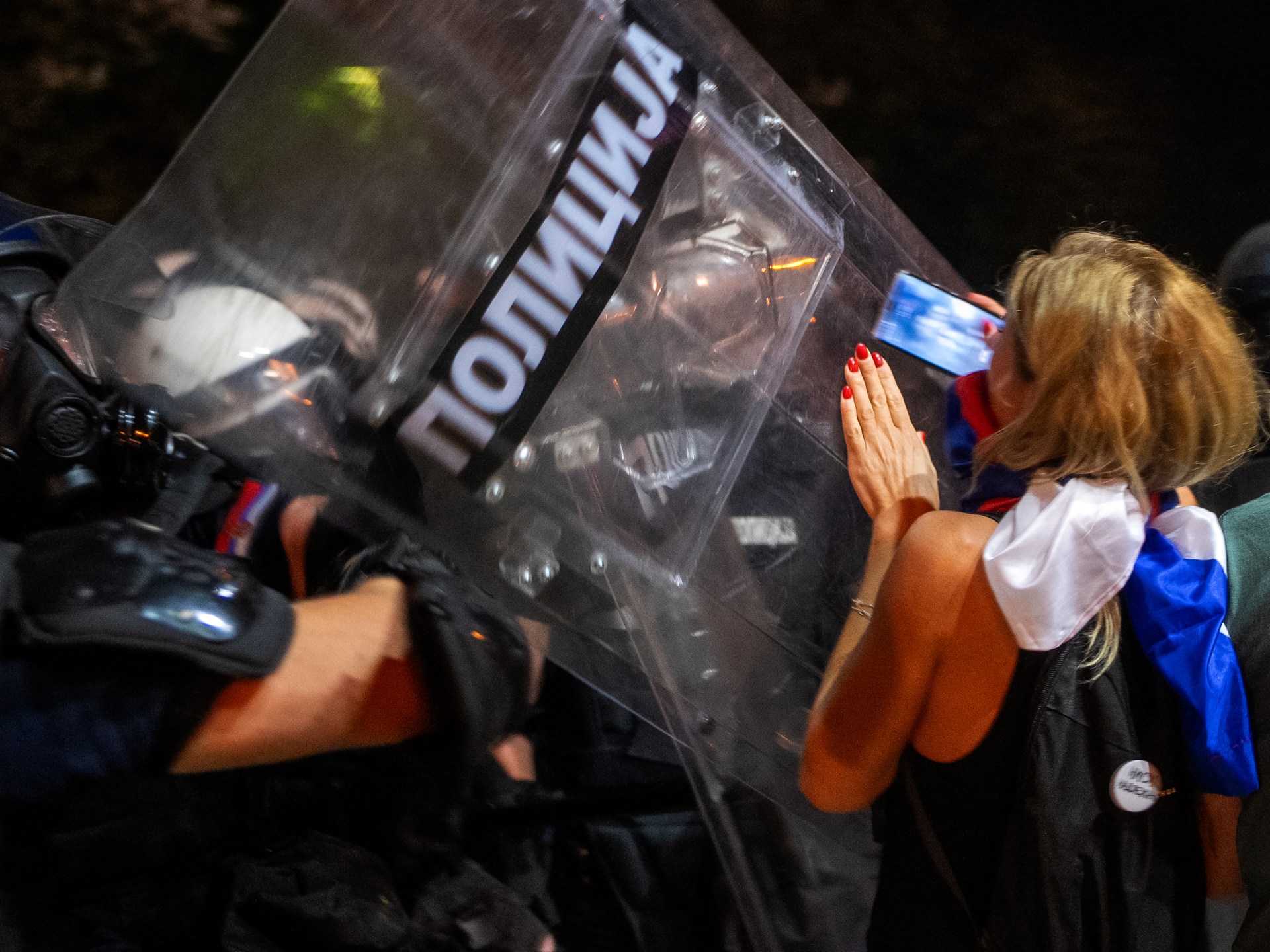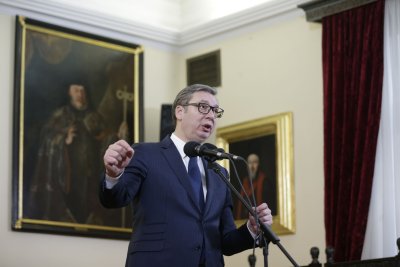Serbian police fire tear gas at protesters demanding end to Vucic rule | Protests News
After 10 months of dissent, protests show no signs of dying down as fury at alleged government corruption grows.
Published On 5 Sep 2025
Serbia’s police have fired tear gas and stun grenades at antigovernment protesters in the city of Novi Sad who are demanding snap elections and an end to President Aleksandar Vucic’s 12-year government.
Thousands gathered on Friday at the city’s state university campus for yet another demonstration after 10 months of persistent dissent prompted by the fatal collapse of the Novi Sad train station roof last November, which killed 16 people.
Recommended Stories
list of 3 itemsend of list
The tragedy became a flashpoint for frustrations with the government, with many Serbians saying it had been caused by alleged corruption and negligence in state infrastructure projects and calling for Vucic’s departure.
“Vucic leave,” the crowds chanted, repeating their calls for early elections as they marched towards the campus, where police attempted to disperse them with tear gas and stun grenades.
The Beta news agency reported that protesters had earlier thrown flares and bottles at the police.
In an address late on Friday evening, President Vucic said that 11 policemen were injured. There was no information on how many protesters have been injured.
“We are not going to allow destruction of the state institutions,” Vucic told reporters. “Serbia is a strong and responsible state.”
He accused foreign security services of being behind antigovernment protesters and said his supporters would hold rallies in cities across Serbia on Sunday.
The months of nationwide protests have largely passed off peacefully, but took a more violent turn on August 13, when dozens of civilians and police officers were injured in clashes in a number of locations.
The violence, which protesters blamed on heavy-handed tactics by government loyalists and police, was repeated on Monday at a march in Novi Sad to mark the 10-month anniversary of the tragedy.
Authorities have rejected allegations of brutality, despite videos showing officers beating unarmed protesters, and accusations that activists were assaulted while in custody.
Students, opposition groups and anticorruption watchdogs accuse Vucic and his allies of ties to organised crime, using violence against political rivals and suppressing media freedoms.
Vucic denies the allegations and has remained defiantly in office at the helm of a reshuffled administration. His nationalist Serbian Progressive Party (SNS) has responded to protests by staging its own rallies around the country.

